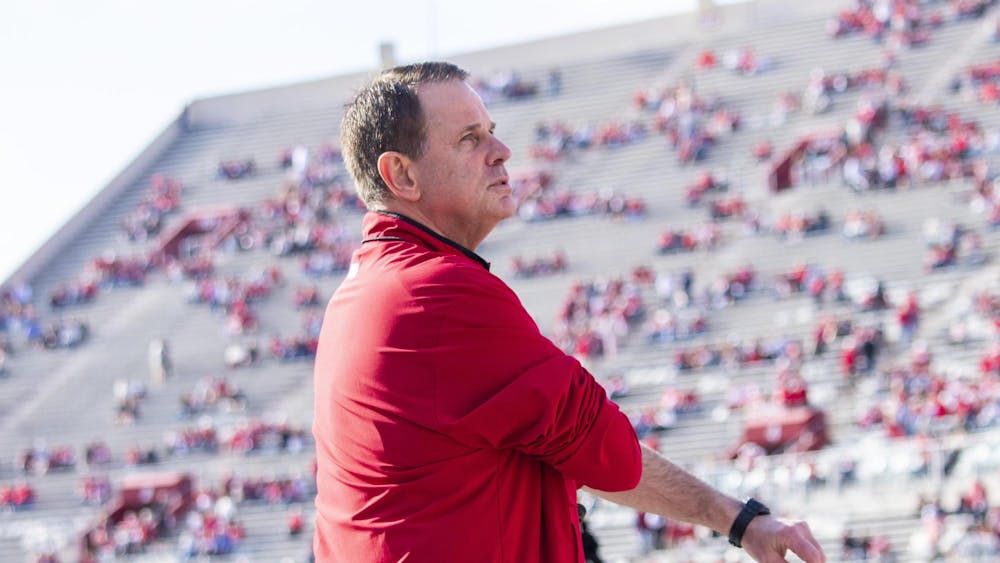No one could accuse Palestinian Authority President Mahmoud Abbas or Israeli Prime Minister Ariel Sharon of not trying. At the risk of alienating themselves from their own peoples, both men have taken definitive steps toward a peace that has eluded the region for nearly 60 years.\nA lot has happened in the past month. Abbas banned civilians from carrying weapons in public, deployed police throughout Gaza and coaxed violent groups like Hamas and Islamic Jihad into observing an informal cease-fire, according to Associated Press reports.\nHis utmost priority is to reassert the rule of law in the Palestinian territories. Without it, his administration will be disastrously impotent against militant groups. Israel will never concede to a two-state solution until it feels safe, and unfortunately for the Palestinians, Israel holds all the keys to their nationalist dream.\nSharon also took steps toward peace. Now, the Israeli army chief must personally approve any operation against Gaza or the West Bank, Palestinian militants who put down their weapons will receive conditional amnesty, and 900 Palestinian detainees will be released from Israeli prisons.\nEven Egypt has offered to help secure its border with Gaza to curtail weapons smuggling. \nThe goodwill gestures from all sides prompted Abbas and Sharon to meet Feb. 8 in Sharm el Sheikh, Egypt, and announce a truce to end the past four years of bloodshed.\nThus far, the peace has been strenuous at best, non-existent at worse. Within 48 hours of the official truce, members of the Al Aqsa Martyrs Brigade opened fire on an Israeli car in Nablus and Hamas launched volleys of mortars and rockets onto a Jewish settlement in Gaza. The groups claimed to be responding to Israeli attacks against Palestinians, according to the AP. \nA year ago, this would have been enough to bury the infant truce before it took its first step. Abbas, desperate to convince both sides of his resolve and authority, fired three security chiefs for failing to stop the attacks. And Sharon is proving surprisingly tolerant. He understands that the rookie president needs time to assert his power and bring militant groups in line.\nPersuading organizations like Hamas to lay down their weapons will be Abbas' biggest challenge. He refuses to confront them with force, preferring to co-opt them and bring them into the political process. This is a good decision. Hamas is a powerful and popular group among the Palestinian people, and he would find it a formidable opponent if he were to go against it.\nFor this reason, Sharon needs to alter his current policy and accept Hamas' place at the negotiating table. Hamas is as much a political party as it is a militant group. It attacks Israel with one hand, and with the other it controls 10 of 17 Palestinian municipal councils and provides schools and welfare to much of Gaza.\nBoth Hamas and Israel see each other as illegitimate entities that should be destroyed. Realistically, neither is going anywhere anytime soon. What's more, Hamas knows the infitada is not working. With the ratio of Palestinian to Israeli deaths sitting between three to one and five to one, Hamas could be persuaded to play ball with the right incentives. Gaining its support is crucial because, as the recent mortar attack demonstrated, Hamas feels no obligation to any cease-fire unless it takes part in the negotiations.\nAbbas and Sharon agree they have a rare opportunity and should exploit it. To that end, Abbas will visit Sharon on his ranch in southern Israel in the coming months, and both leaders accepted separate invitations to visit the White House in the spring. With a lot of luck and even more tolerance, they might make it this time.
Peace becoming possibility in Middle East
Get stories like this in your inbox
Subscribe





